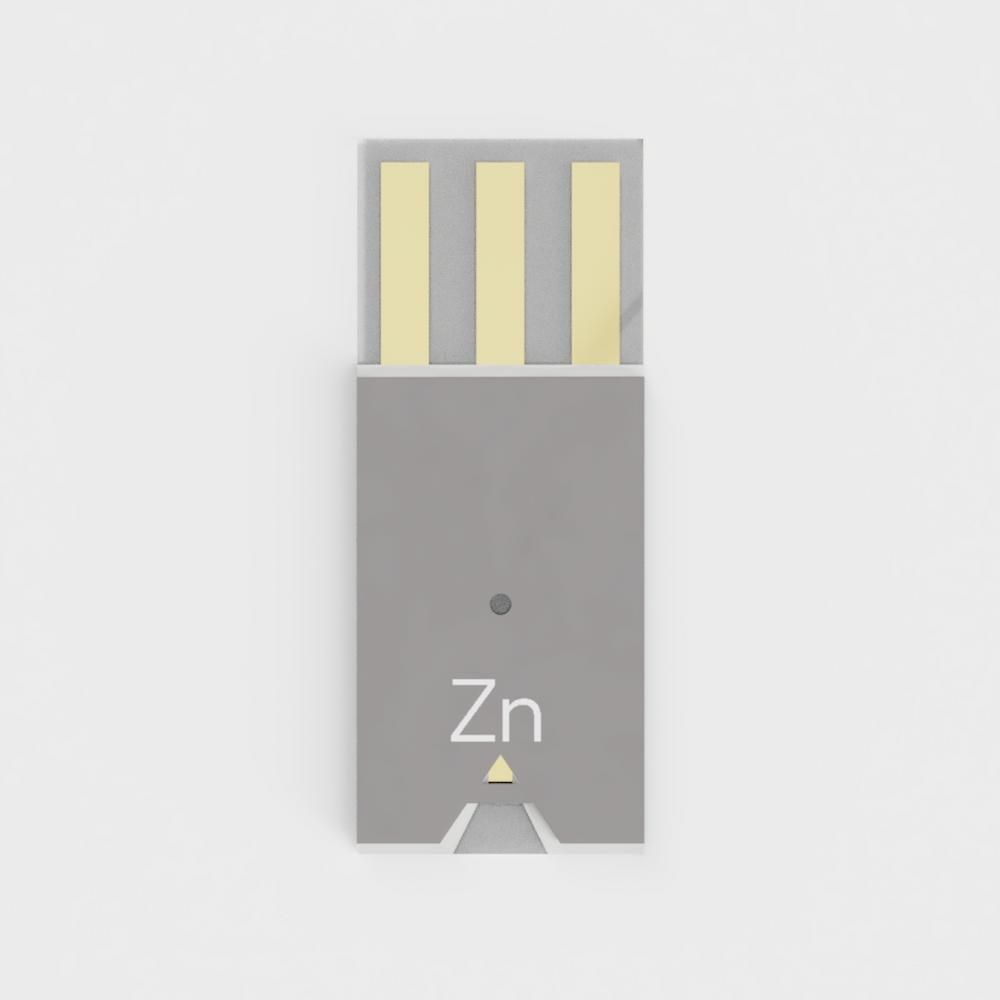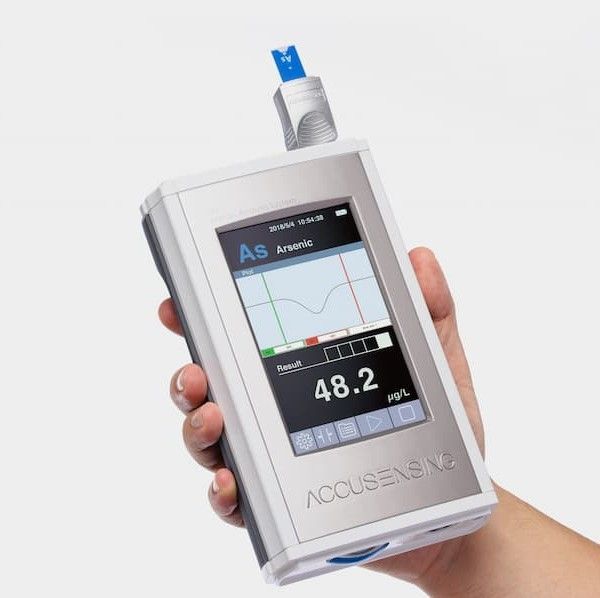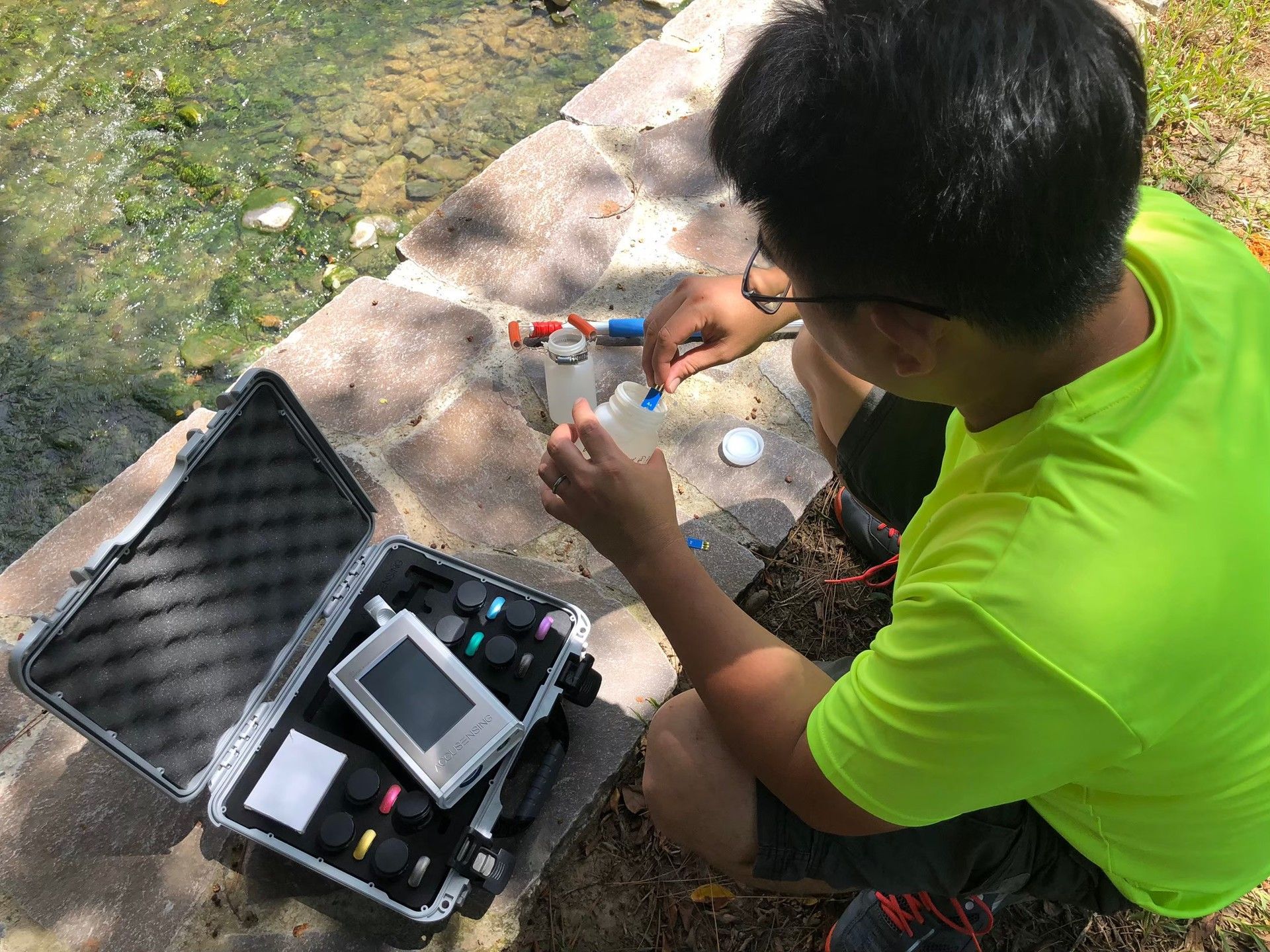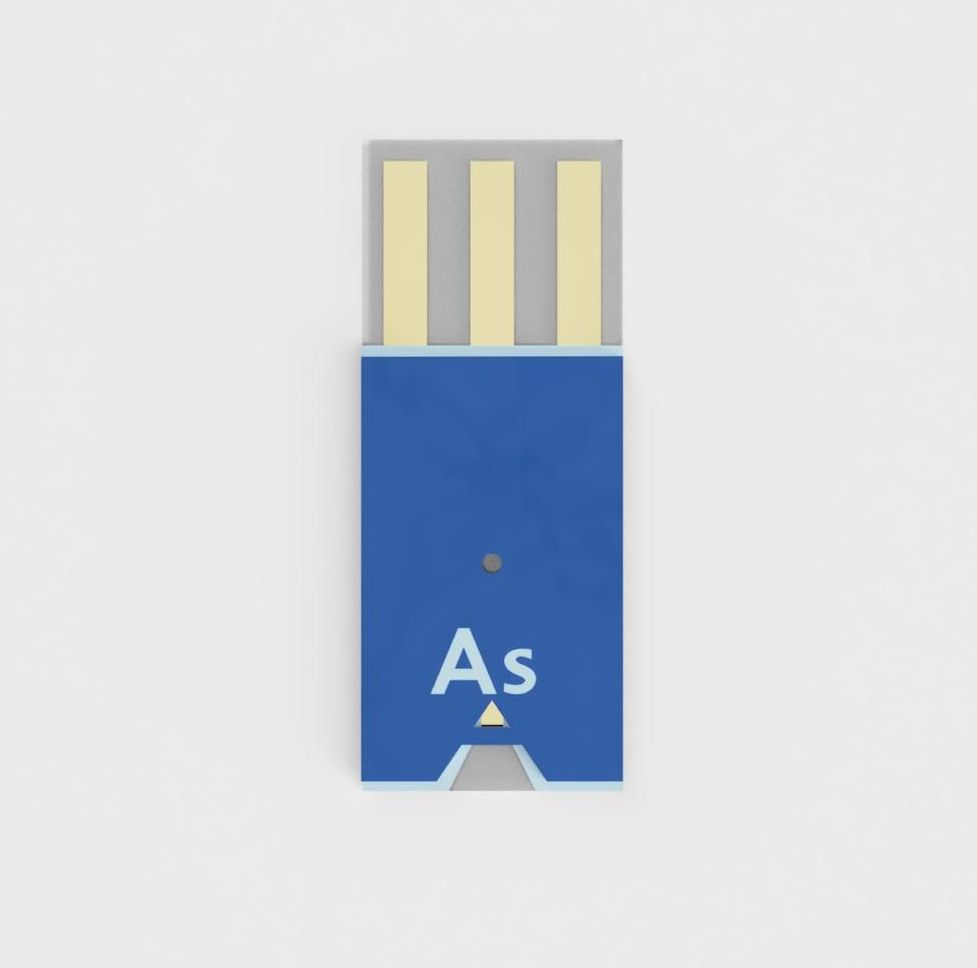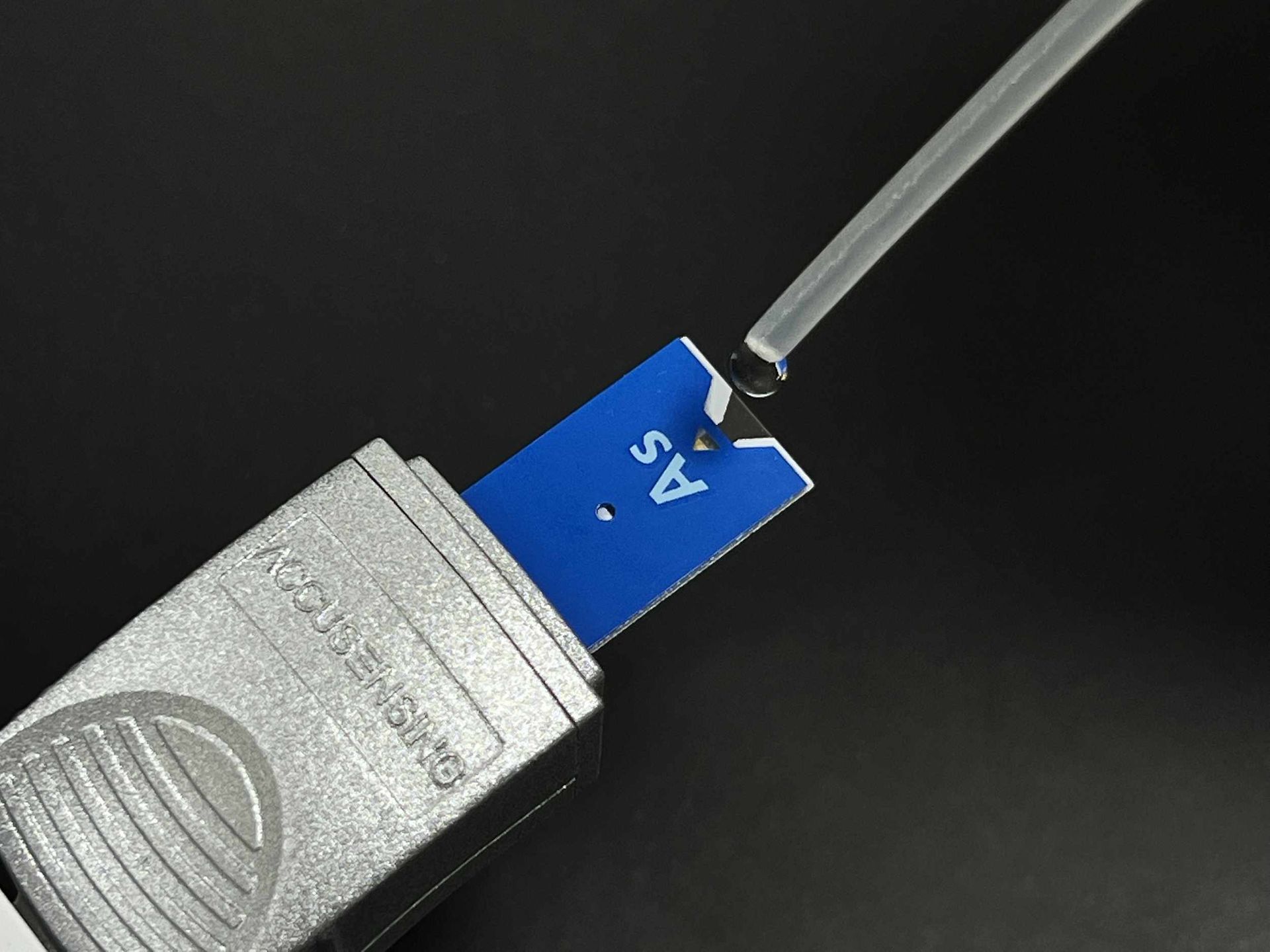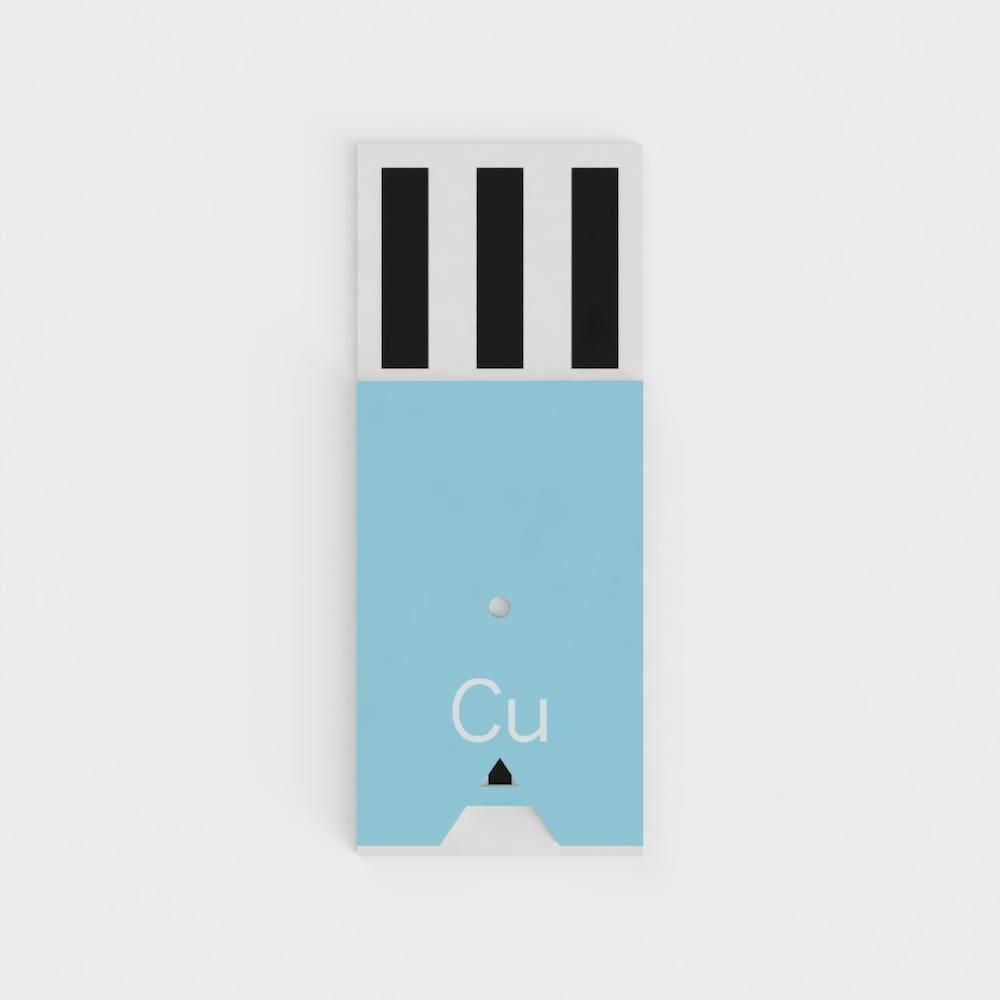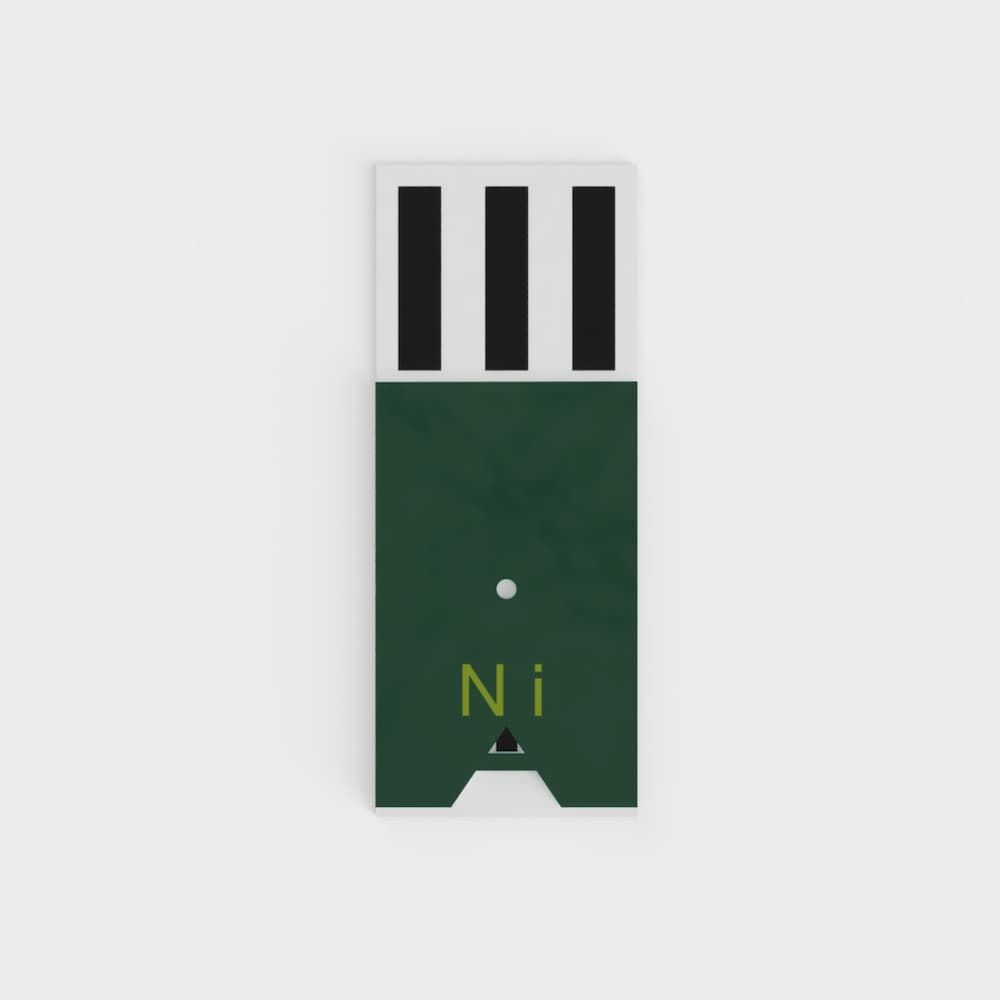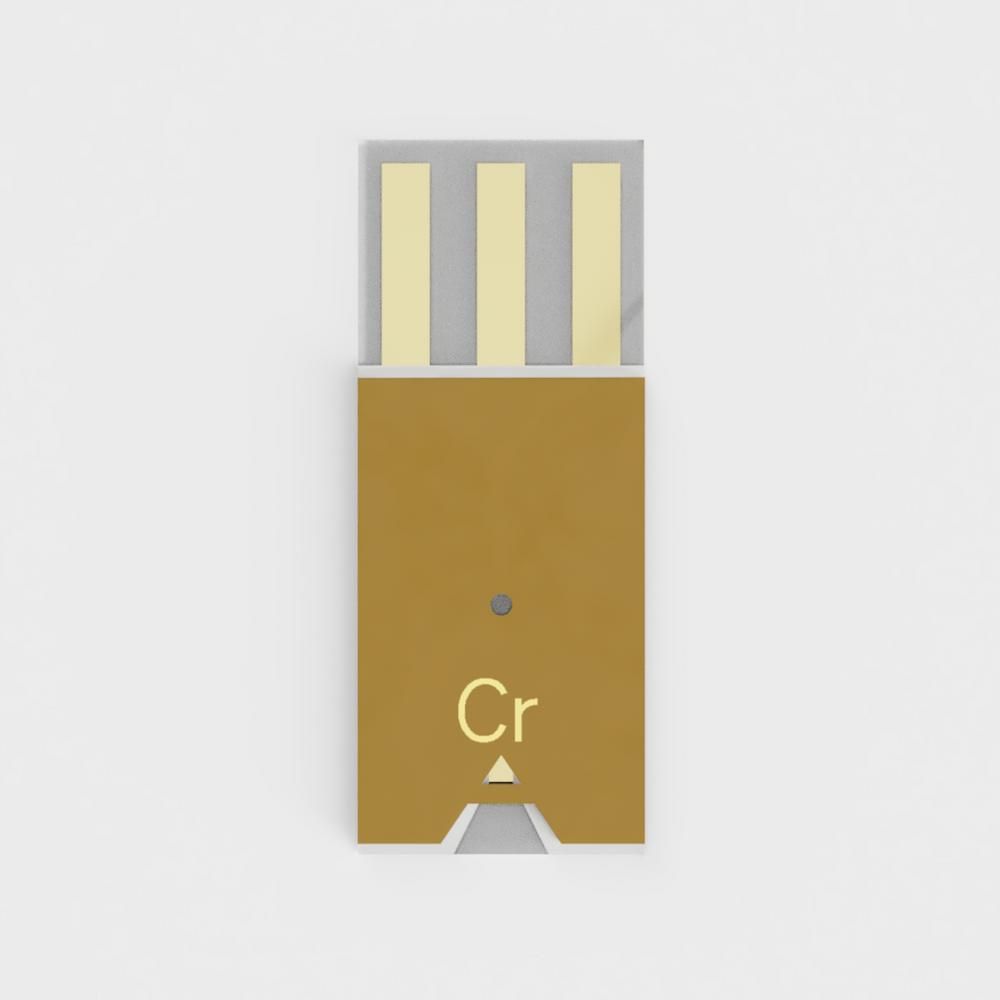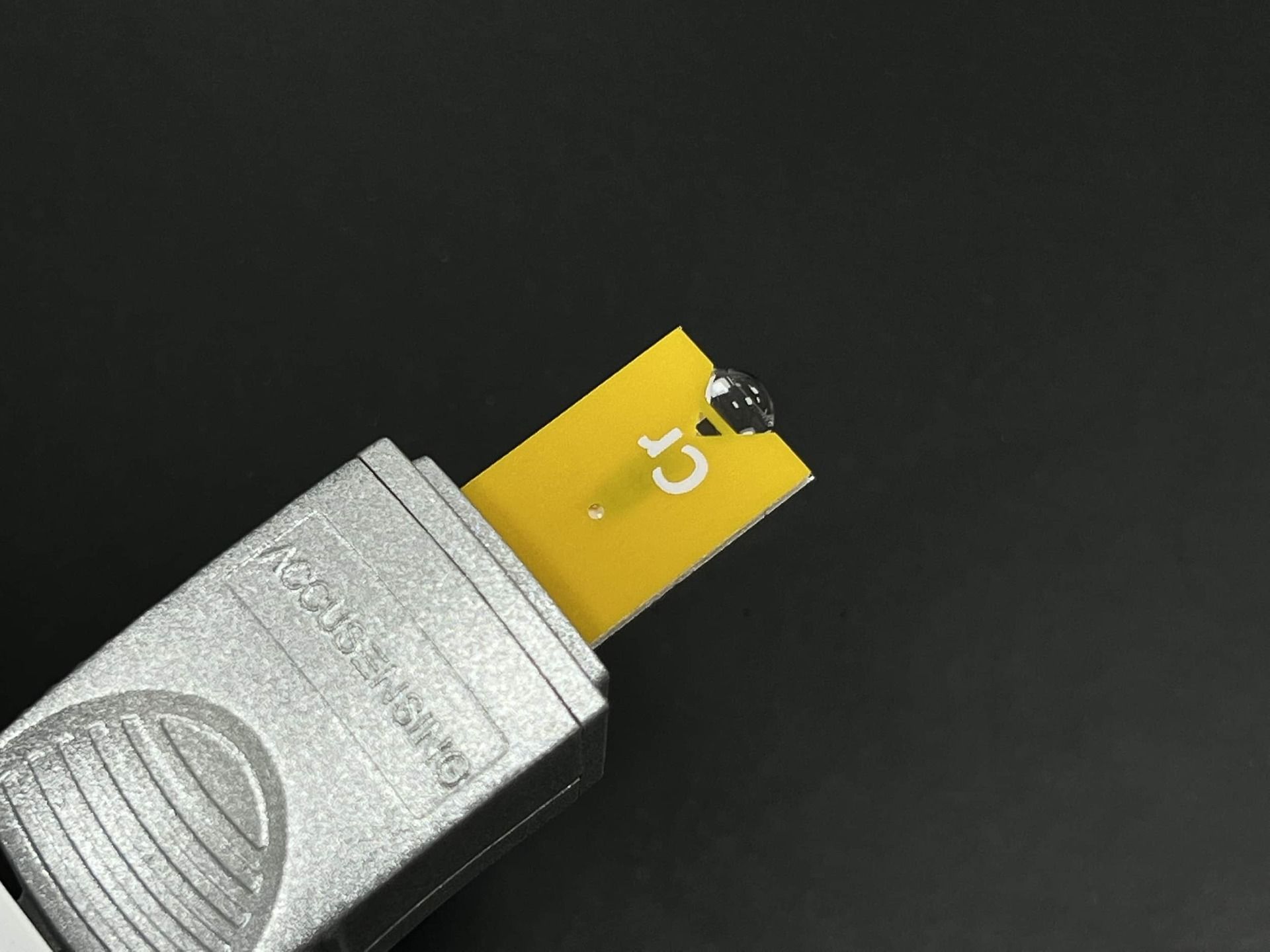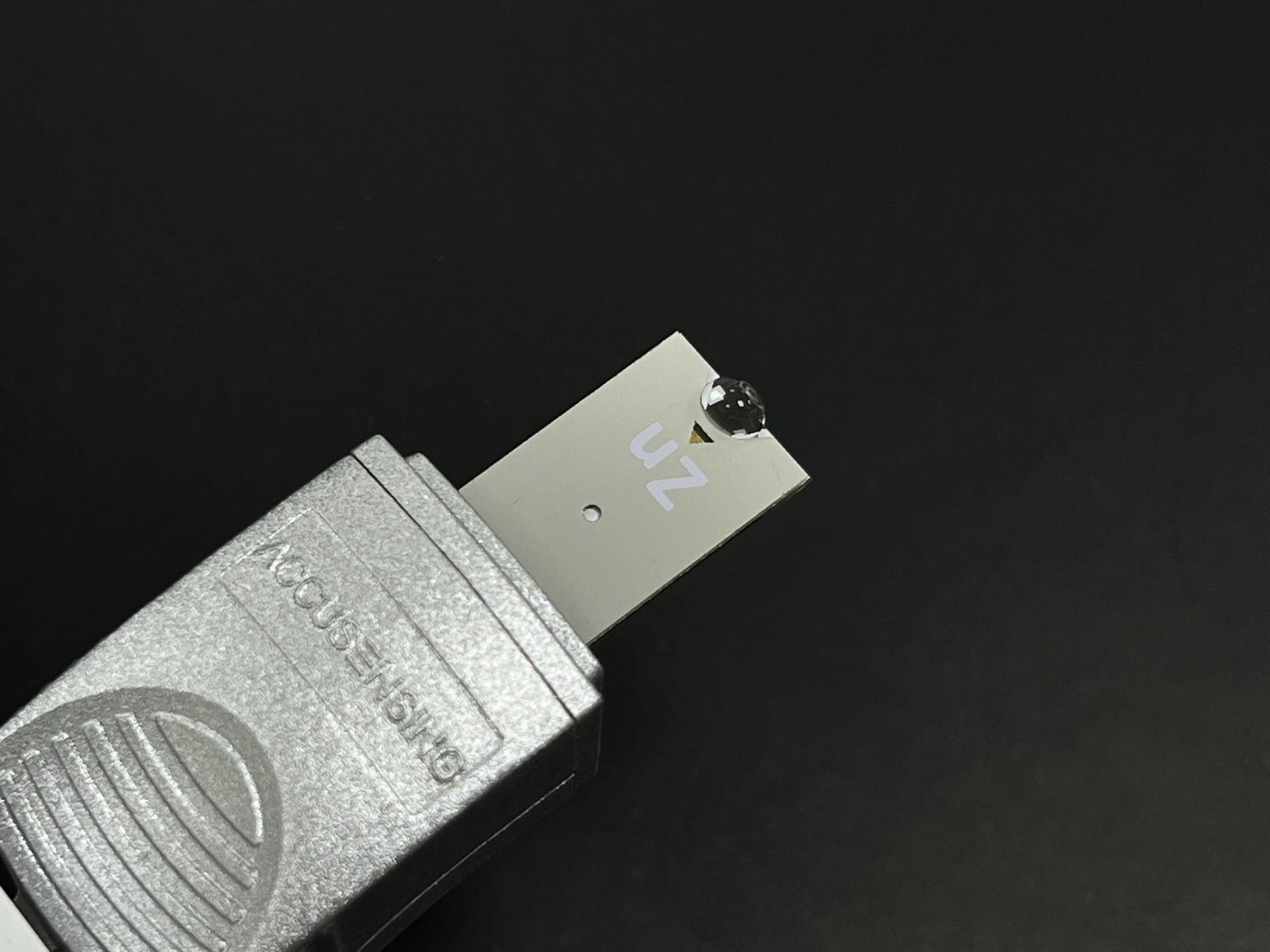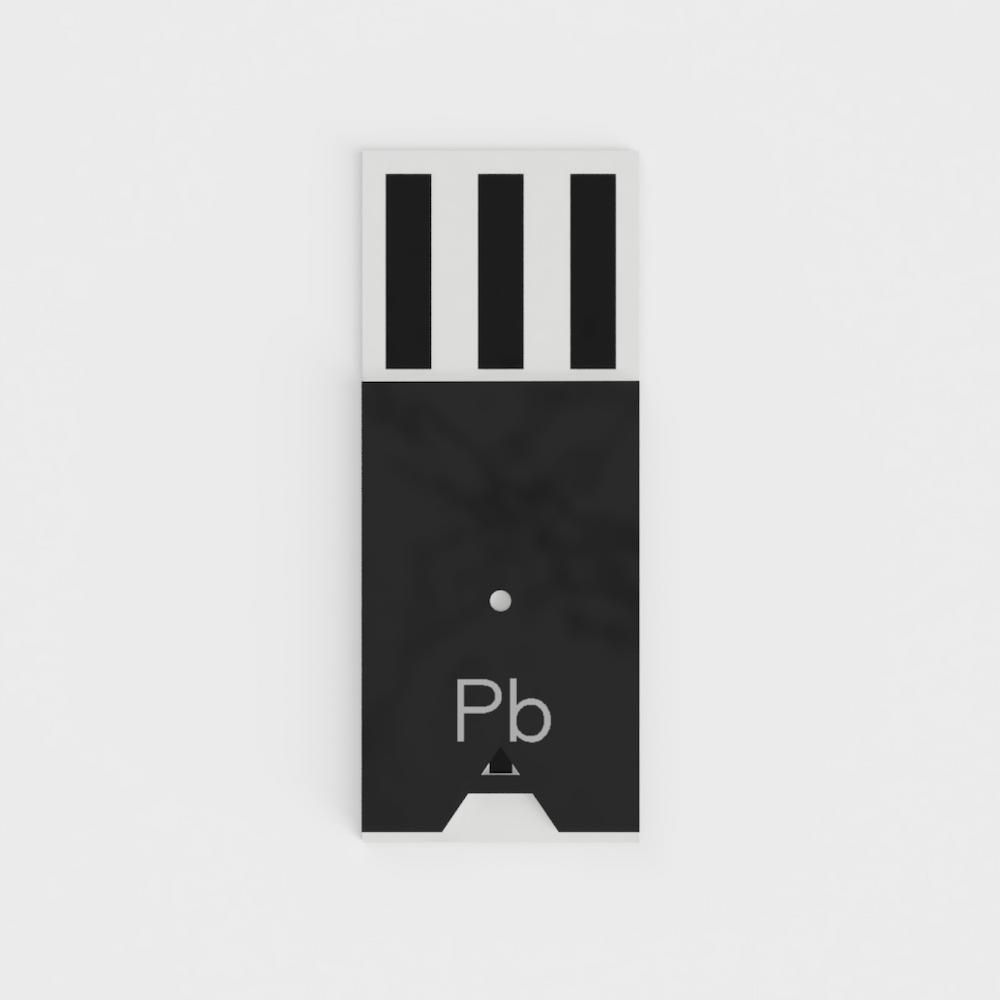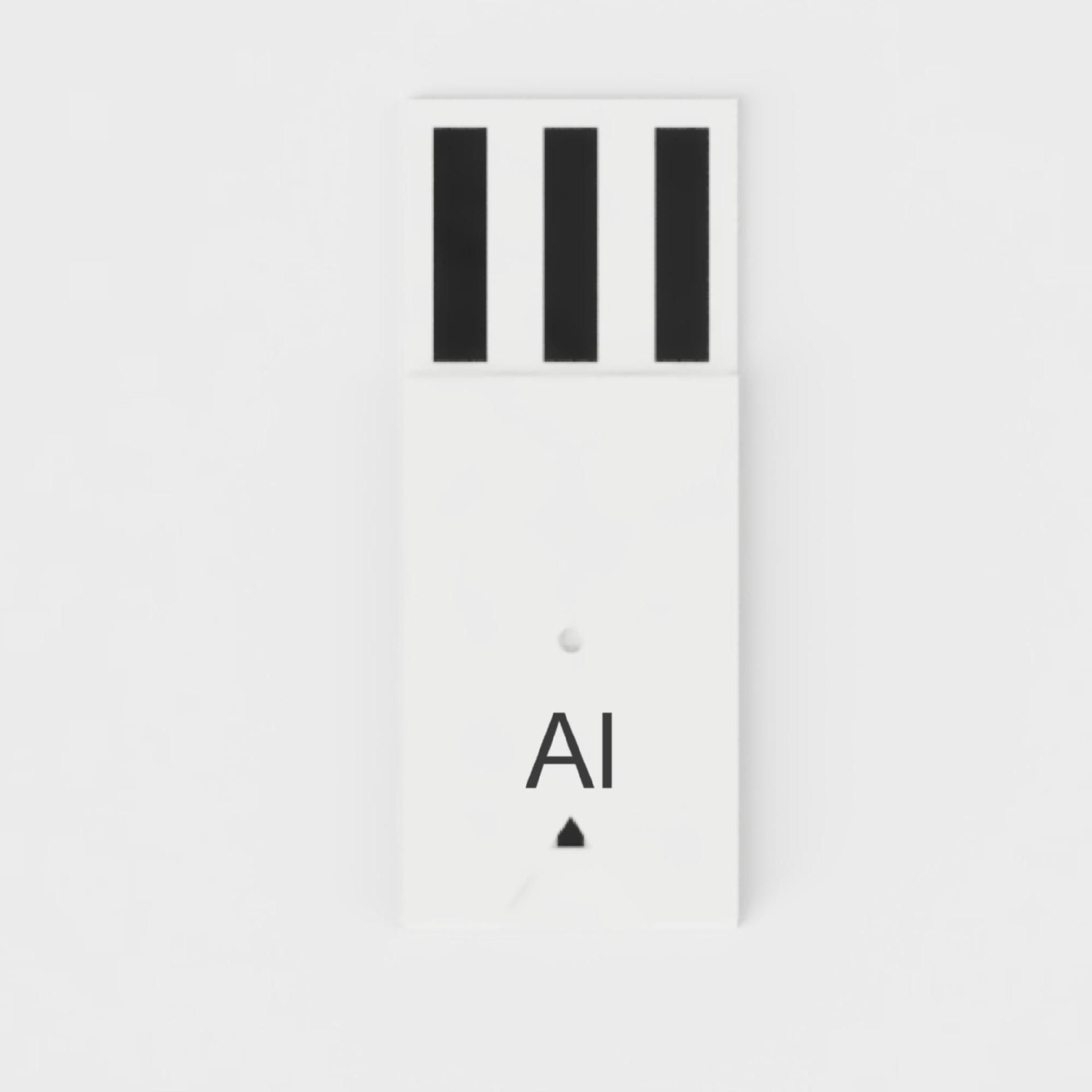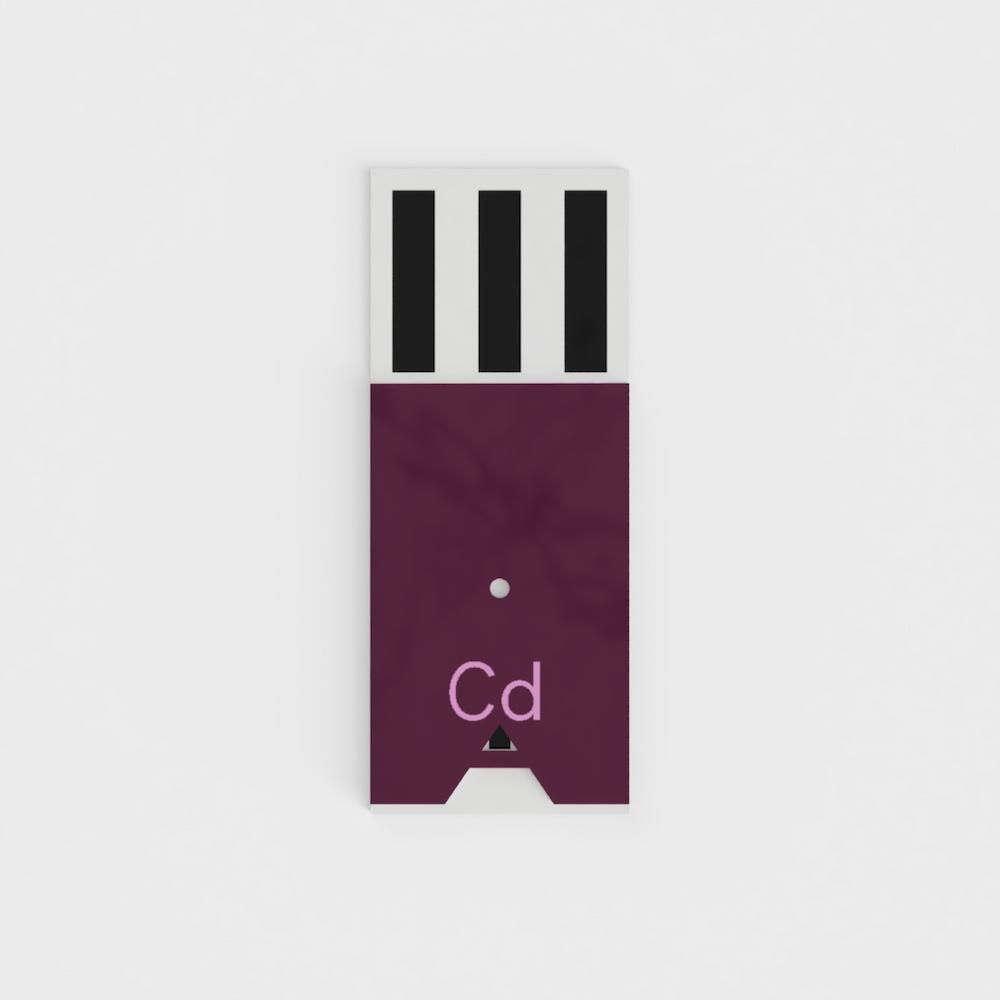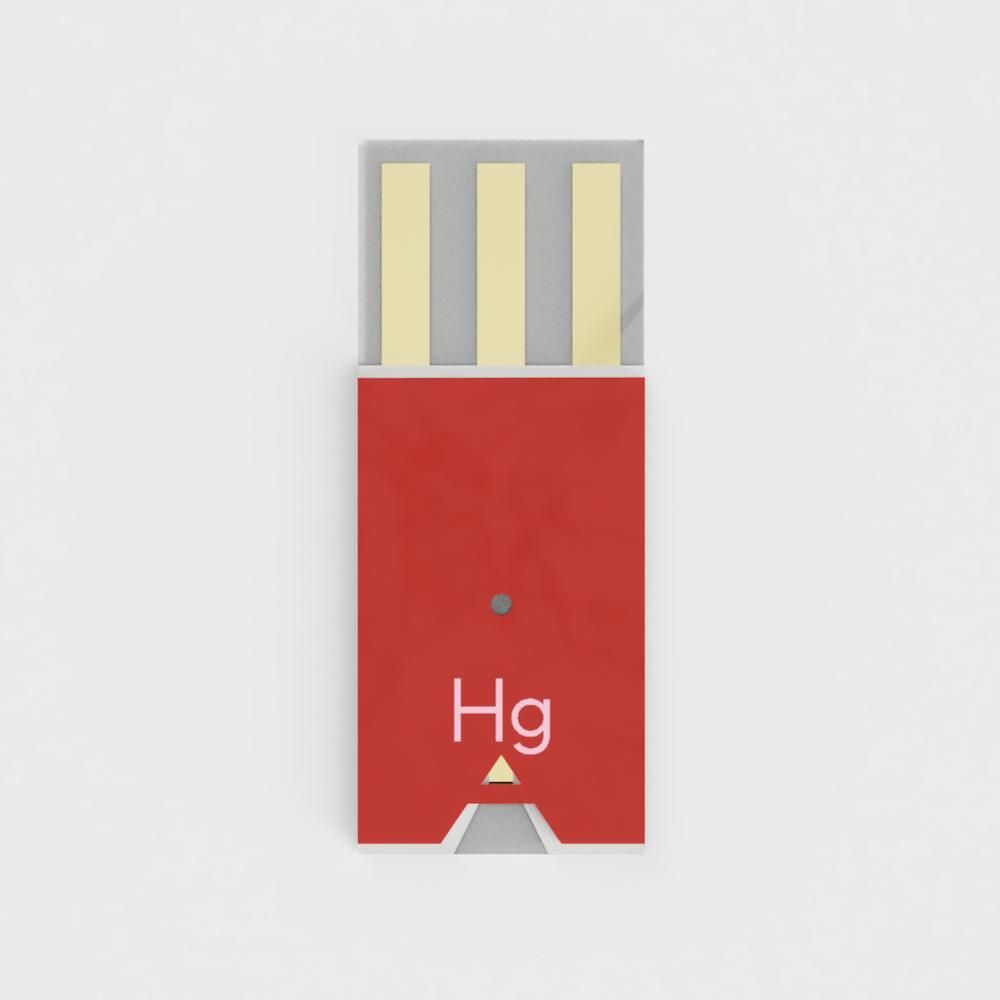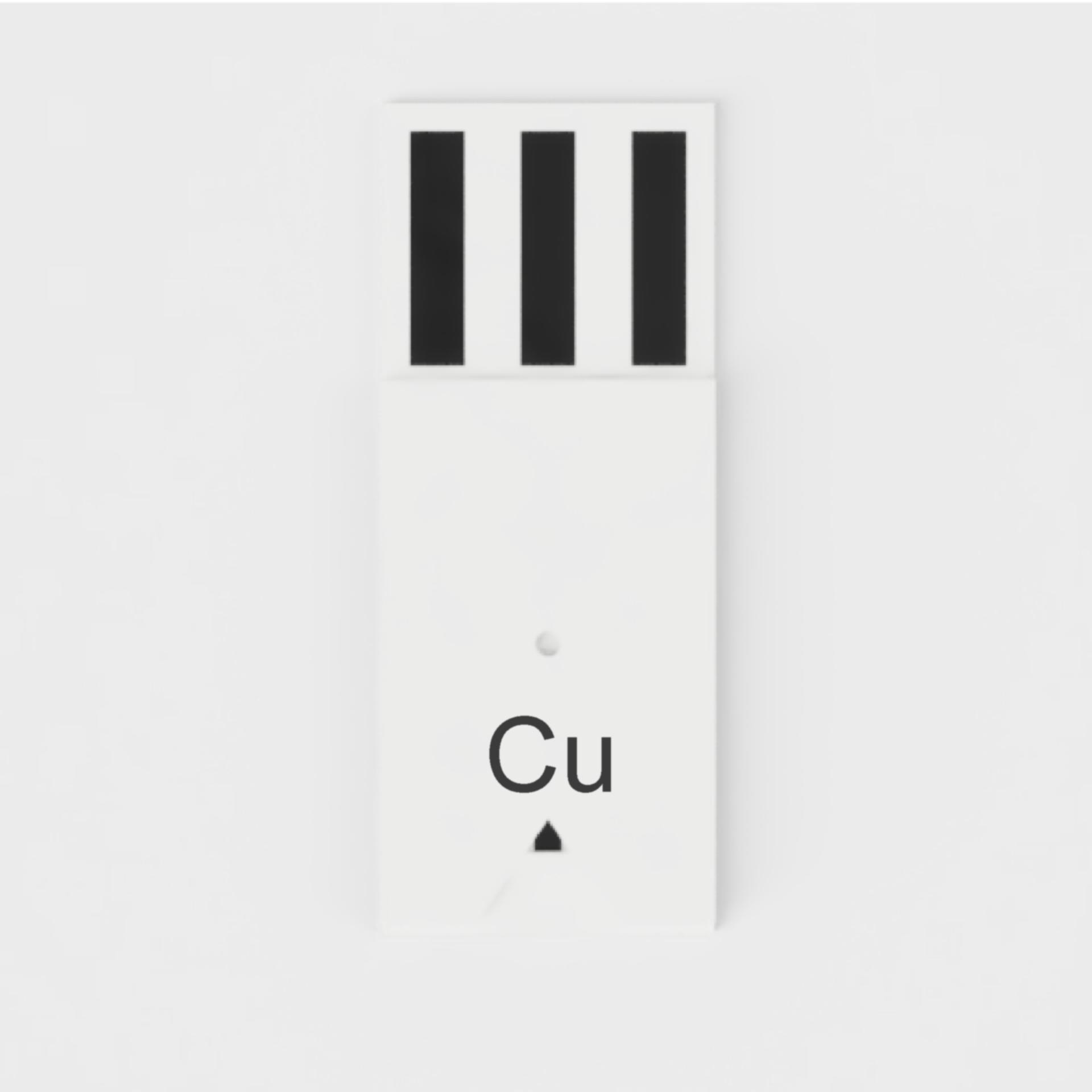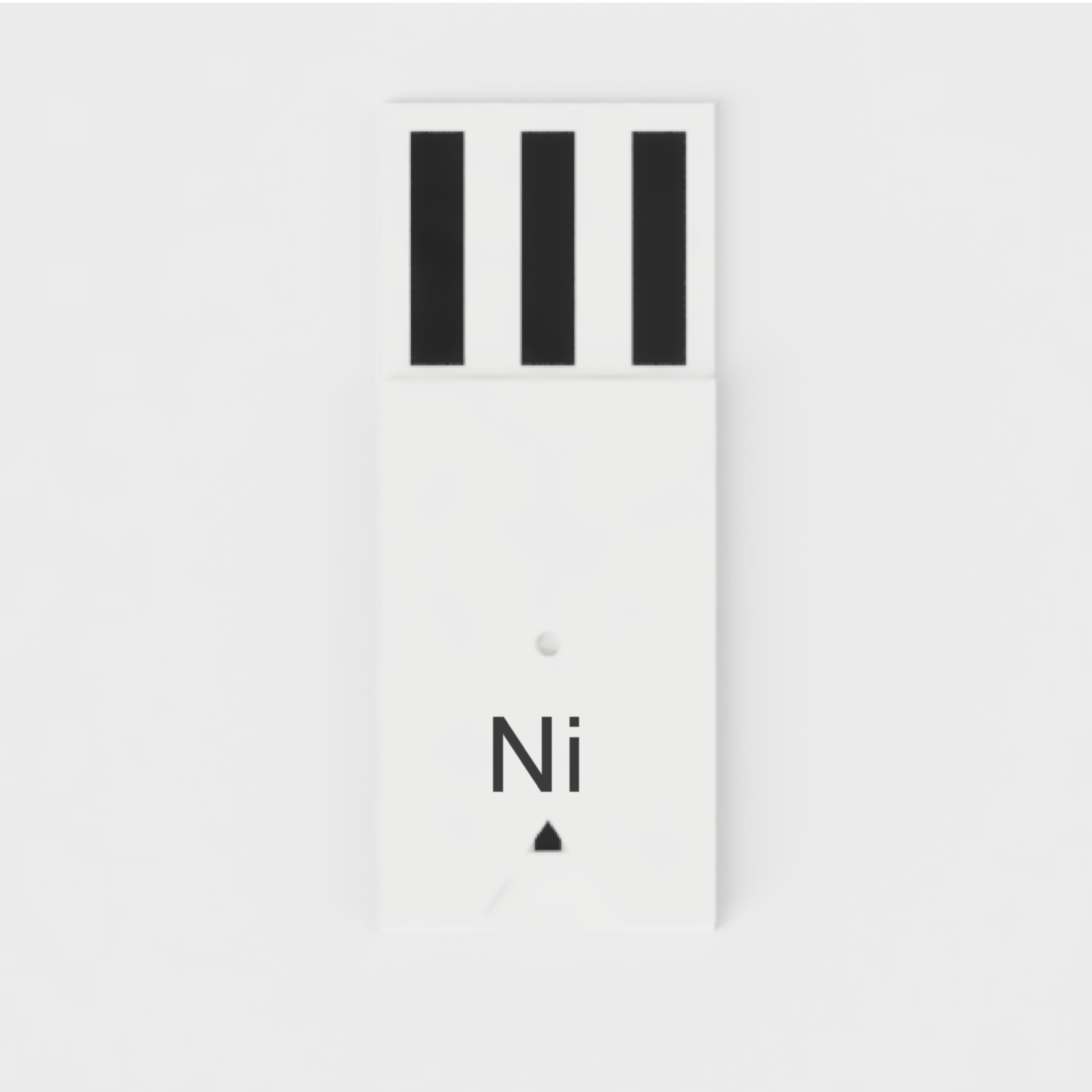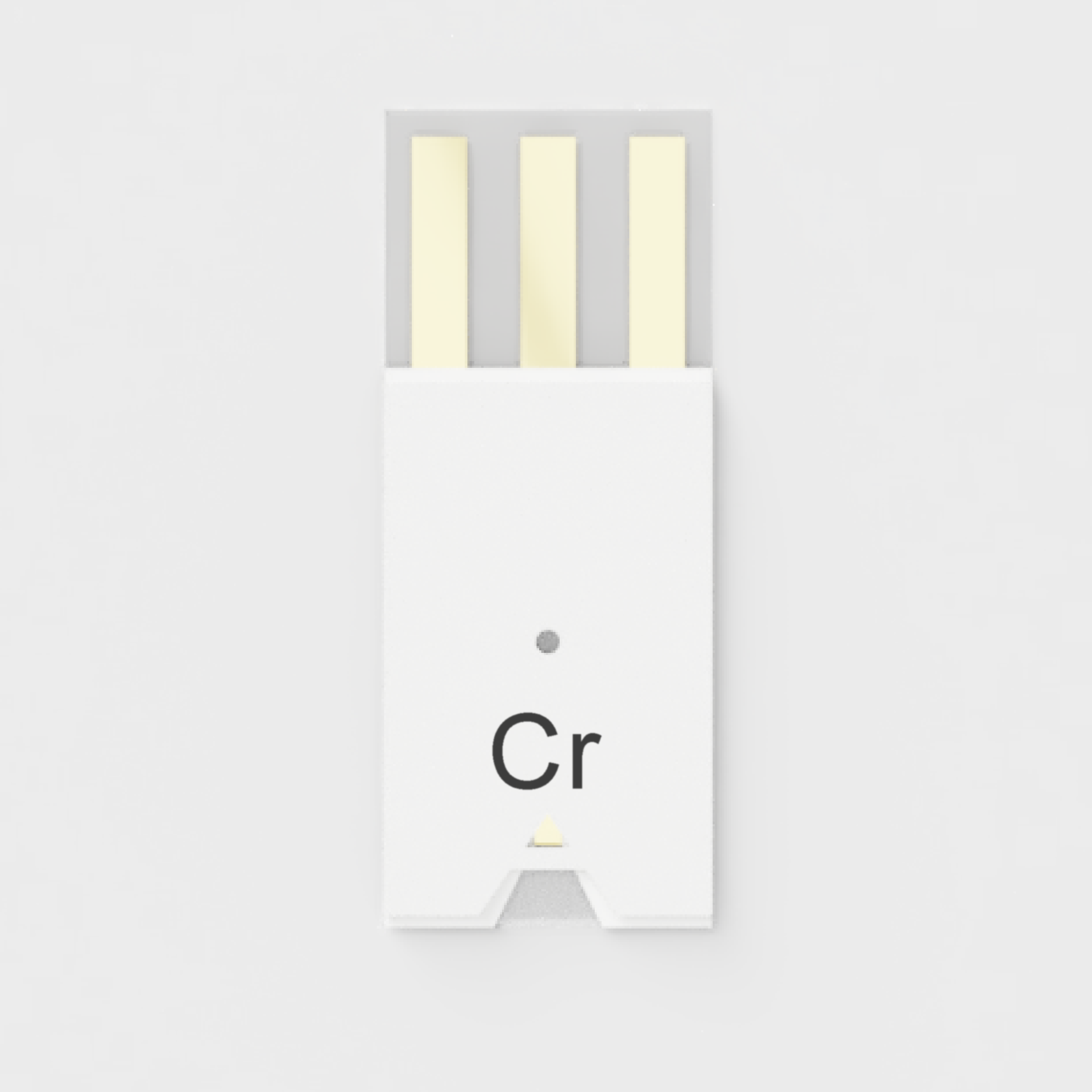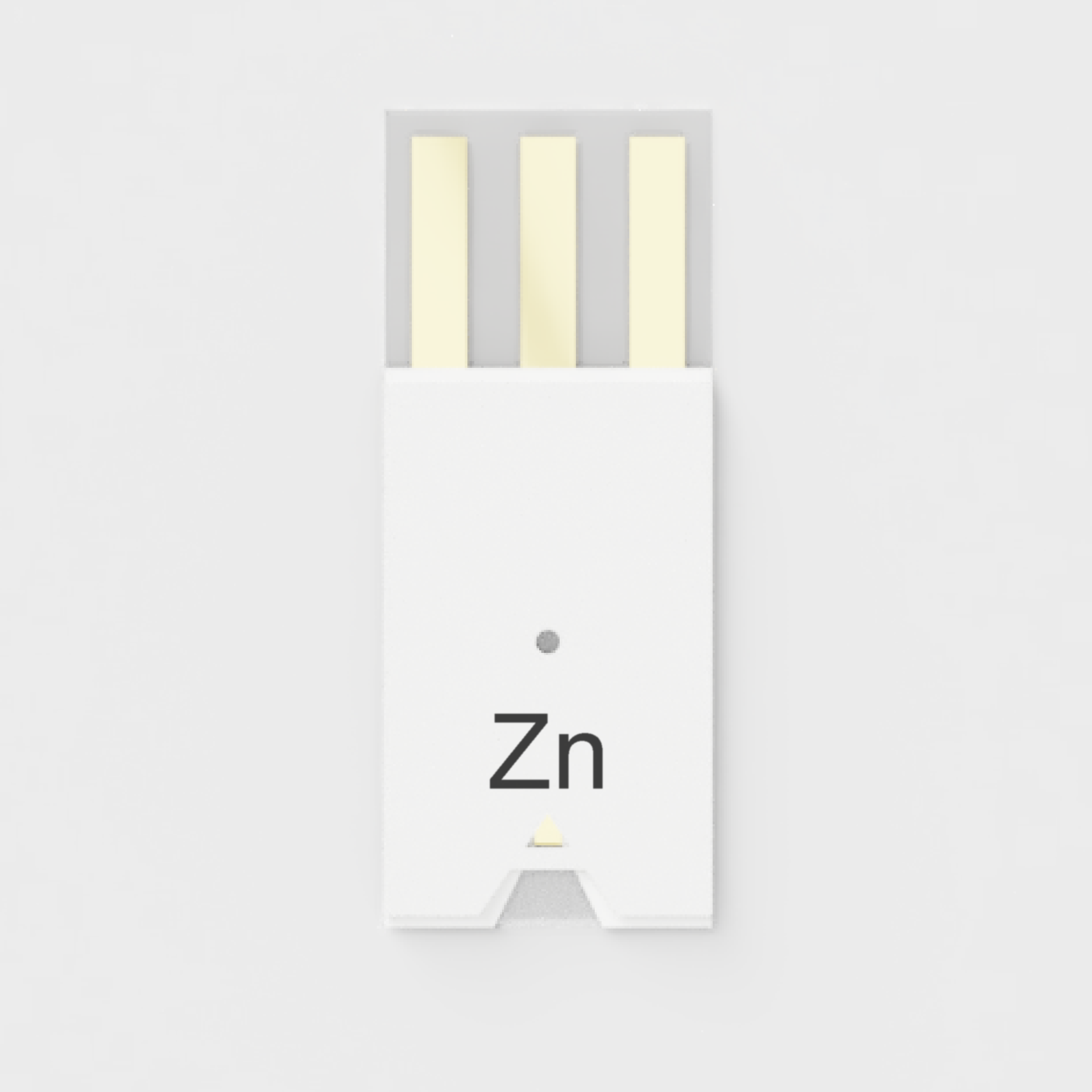Product Introduction
Zinc ion electrochemical sensor test strip
The M series test strips introduce key technologies of biomedical blood glucose test strips, integrating electrochemical three-electrode system, microfluidics and drug coating technology on each sensor. Using a consistent production process, the quality of each tube sensor test strip is strictly controlled, and laboratory ppb-level detection can be achieved within a few minutes. With the portable electrochemical metal ion detection system MAS G1, users do not need complicated pre-treatment and calibration procedures, and do not need to worry about sample cross-contamination or interference caused by human operation, and can obtain the most real-time data in a highly efficient way.
SPECIFICATION
- model
- Zn-M050500
Detection species Divalent zinc ion - length
- 30 mm
- width
- 12 mm
- Microchannel volume
- 10 uL
- Calibration line concentration range
- 0.50-5.00 mg/L
- Minimum detection limit
- 0.35 mg/L
- Analysis time
- 90 seconds
Technical Information
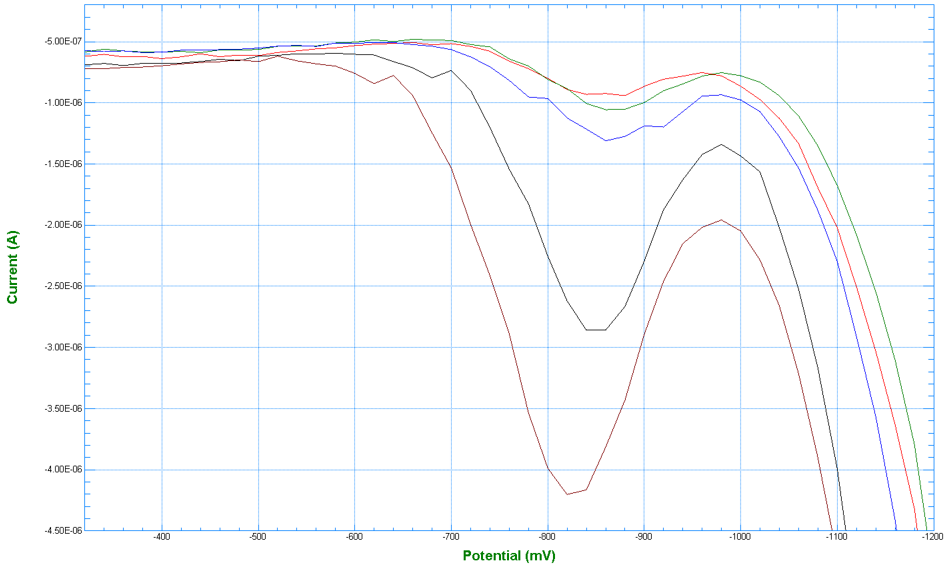
The left picture shows the electrochemical voltammogram of different concentrations of zinc ions (0.50-5.00 mg/L) in industrial wastewater detected by using the M series zinc ion sensor (Zn-M050500) and the electrochemical metal ion detection system (MAS G1).
There is a very obvious zinc ion current signal near -800 mV. The signal increases with the increase of zinc ion concentration. After regression analysis of the current signal intensity and concentration, R2 > 0.99, indicating that this sensor can accurately quantify in real samples.
The quantitative range of Zn-M050500 (0.50-5.00 mg/L) is set for mass production to comply with the current Taiwan industrial effluent control standards. If you have quantitative requirements below 0.50 mg/L or above 5.00 mg/L, please call or write to our company for further discussion.
FEATURES
- No need to add pre-treatment reagents, just dip the test piece in the water sample
- No need to build a calibration line
- Equipped with microfluidic reaction tank, which is pre-coated with reaction reagents (non-controlled toxic substances)
- Only one drop of sample required
- Electrochemical three-electrode system detection (non-optical method)


